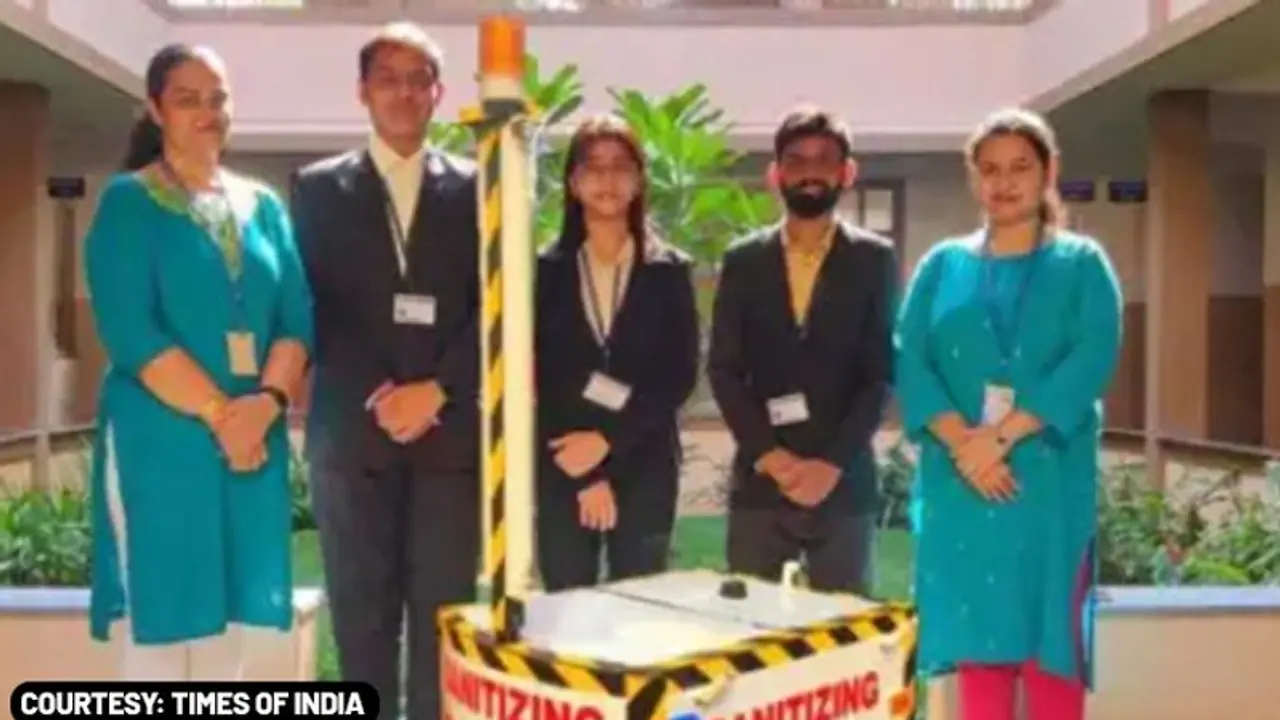3 engineering students have designed a robot that can spray chemicals from as far away as 400 metres
Bengaluru: In an invention that makes any Indian proud, engineering students, from Don Bosco college of engineering, Fatorda, have designed a robot that can spray chemicals from as far away as 400 metres.
The invention was part of a final year project.
Upset and concerned at the way health workers sanitised an area by spraying these dangerous chemicals that can also harm them, these students took upon the challenge.
The three students are: Vivek Khadilkar, Saeel Kamat and Drasti Naik of the electronics and telecommunication branch.
“In June last year, as the country was battling the pandemic, we had to select a subject for our final year project,” said Khadilkar, as quoted by Times of India.
“We had seen photographs in newspapers and on social media of workers who spray chemicals for sanitisation of buildings by carrying the tank of chemicals on their back. The chemicals are highly concentrated and pose risk to their life, so we thought of coming out with a solution,” Vivek added.
The students did their research before venturing into the project.
“We found a lot of research work done already on a robotic sanitisation device, but there was no device which combines both sanitisation by spraying chemicals and by using ultraviolet rays, and we decided to take up this as our project,” another student said.
The students explain that while spraying of chemicals is more useful in the outdoors due to the watery residue it leaves behind, the ultraviolet method is helpful for indoor spaces.
“If our robotic device is fully charged, it can work for eight hours straight. It has two batteries of 12V each. For spraying, the device has five nozzles and covers a length of six metres. It has a tank of 45 litres to hold the chemicals. The ultraviolet sanitisation is available in the same device, with three tubelights of 230 volts each, including one below to sanitise the floors,” another student said.
